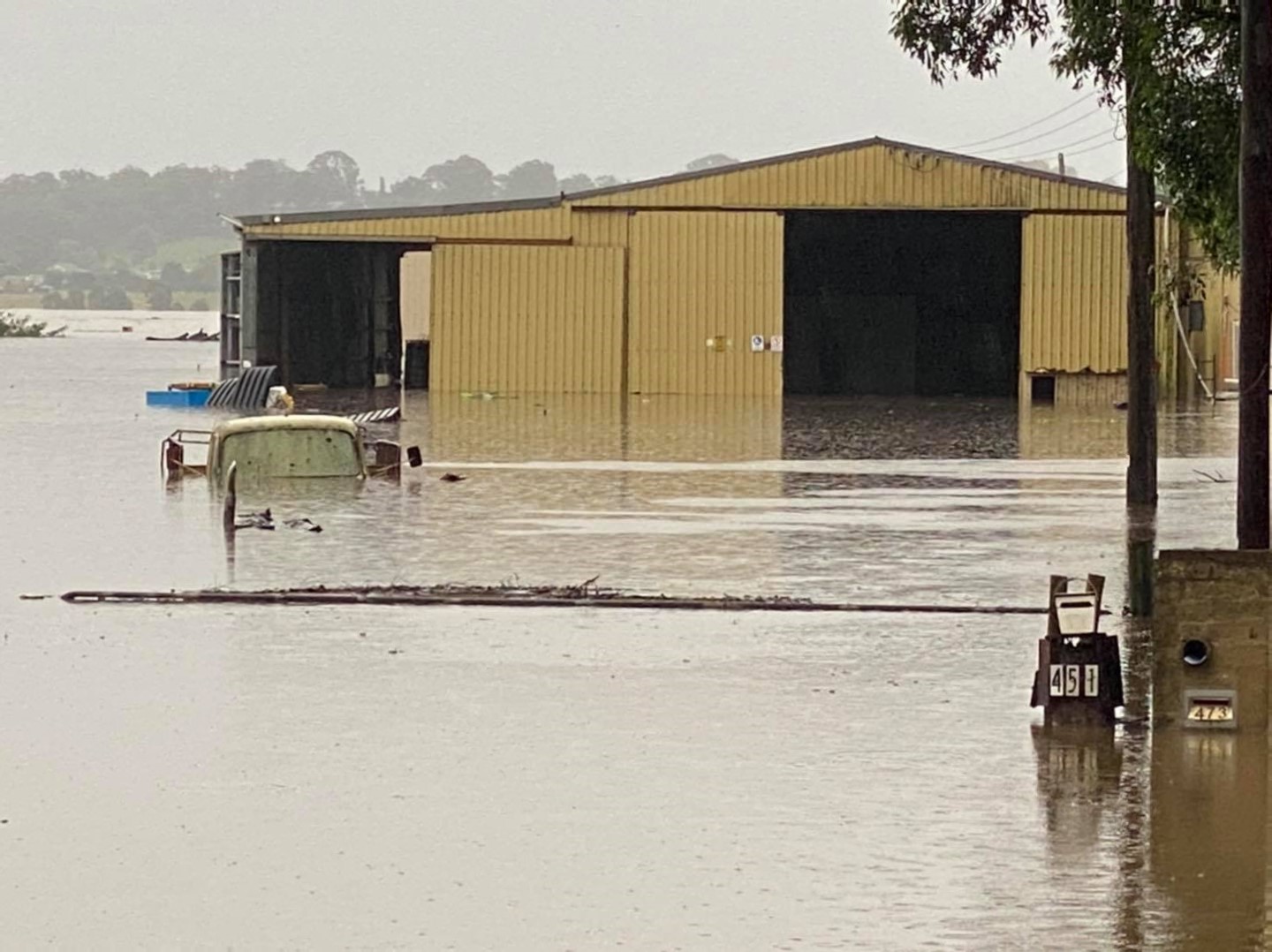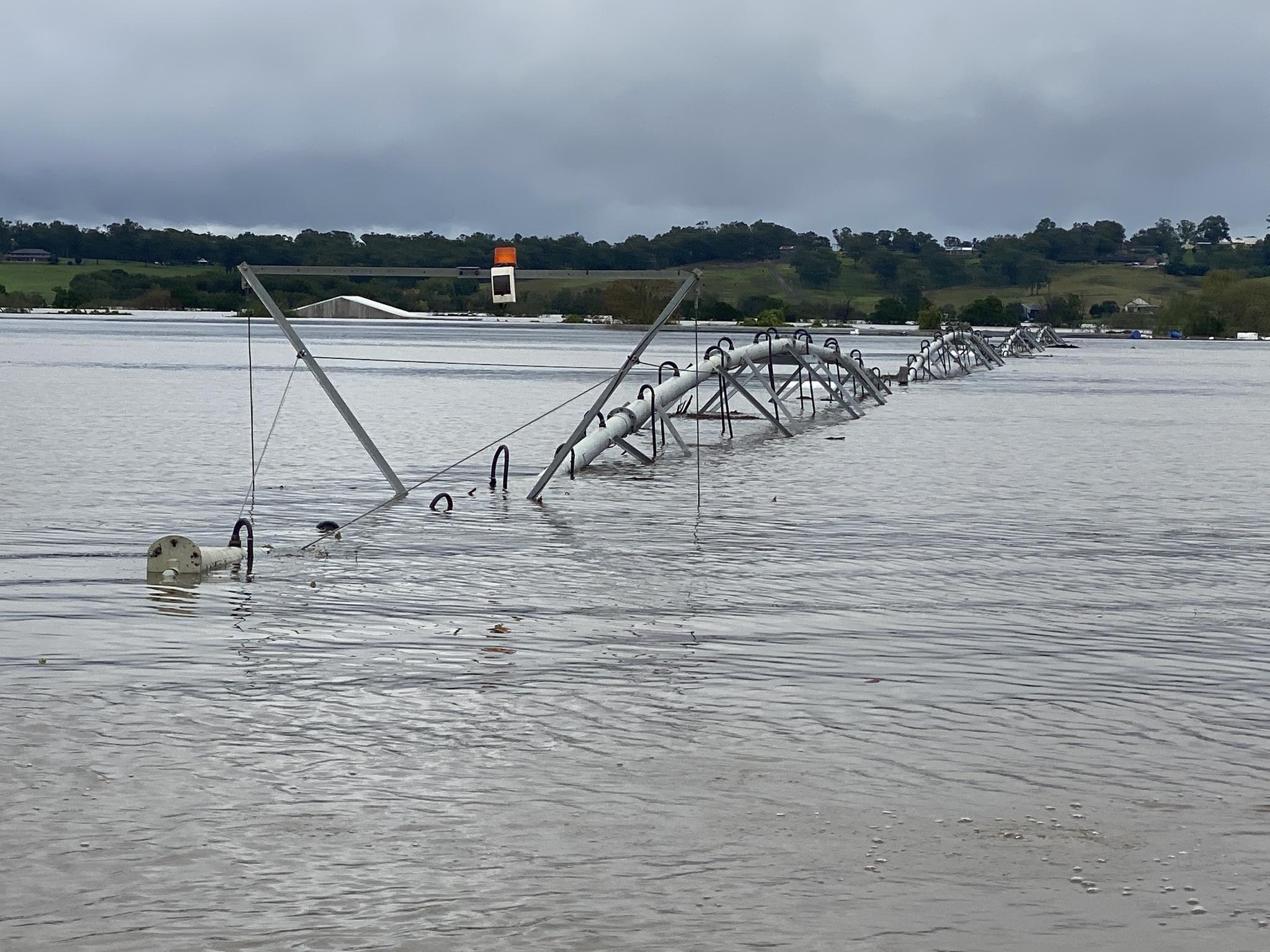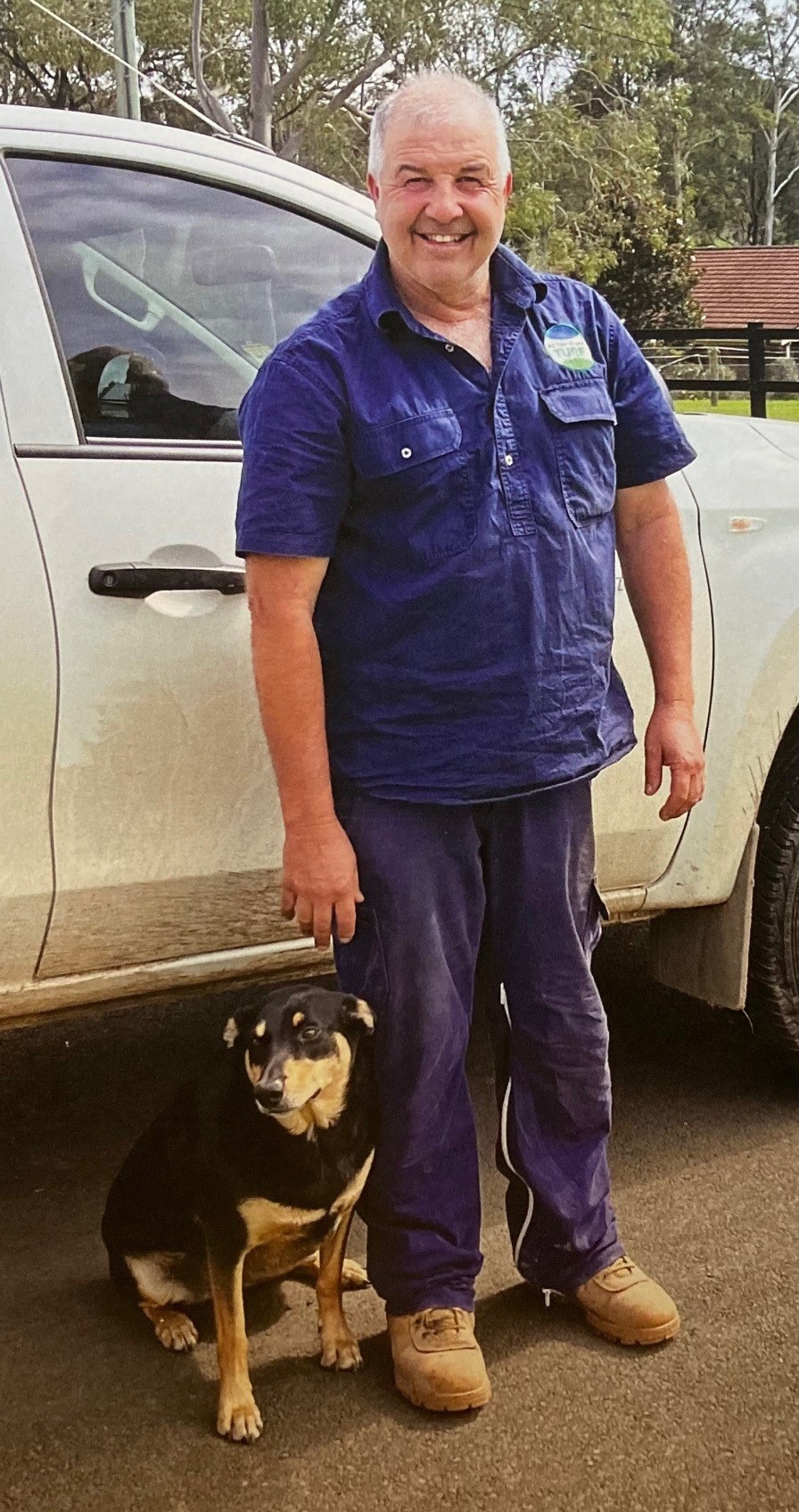Mental health a critical step to improving farm safety
Shock and disbelief is how most people reacted to the news of Wilberforce turf producer Bill Saliba’s accident in May last year.
A stickler for farm safety, Bill was the last person anyone thought would have a workplace accident, let alone one serious enough to cost him a leg and very nearly his life.
Bill and his wife Margaret – who have run All Year Round Turf for 32 years – have chosen to speak about what they’ve learned from it. They hope sharing their story will encourage people to be more alert to the signs and impacts of depression, and prevent other families from experiencing similar suffering.
“I think I was in a bit of a depression,” Bill said. “I didn’t feel right, and I should have done something about it. That’s what I’d say to other people. If you’re not feeling right, just go for a check-up.”
Like other turf producers in the area, Bill was under immense stress from the huge floods that swept along the Hawkesbury and Nepean rivers in March 2021.


The 2021 floods. Photos: Supplied
He had been through major floods before, but that was when his father, John, was still running the farm.
This time the pressure fell squarely on Bill’s shoulders, and he worried about everything: how much turf would be lost from eight days under water, the two years it would take to bring damaged fields back into production, how he would supply customers in the meantime, and how the business would stay afloat enough to keep his loyal workers in a job.
“I always worry about the customers,” he said. “I worry I’m not going to be able to supply them. I was thinking too much. I can tell you when you’re not thinking you’ve got to be really careful. I knew I was stressed out, but I probably should’ve done something about it.”
Margaret noticed Bill had become moody and impatient, snapping at family members and rejecting their suggestions that he seek help.
Bill agreed, saying his personality had changed and he became easily agitated as well as disinterested in the farm.
“I said, ‘I’m only going to work half a day Saturday and not Sundays anymore’,” he said. “And for me to say that, that’s not me. I normally work seven days a week and it doesn’t worry me. There was definitely something wrong with me, I was too worried about everything.”
Bill wasn’t even supposed to be on the farm the day of his accident.
He’d injured his right foot and was on his way to an appointment to have a controlled ankle motion boot, also known as a moon boot, fitted at Windsor.
Bill’s memory of that day is hazy – it’s common for people who are seriously injured to block out traumatic events – and no one really knows what happened.
He drove to the farm where one of the staff was using a mower to loosen dried silt from turf so it could be removed with a vacuum.
“And then I got hurt because I wasn’t thinking,” Bill said. “My head was somewhere else, and I still don’t know what happened. I think I got too close, and I stopped walking.”
After falling on his back, he had the presence of mind to move his head away from the mower and, alerted by the noise of the blades chopping up Bill’s left boot, the driver stopped the machine.
“If he didn’t hear it, I would have been dead,” Bill said.
Several ambulance crews were sent to stabilise Bill before a helicopter flew him to hospital where he underwent surgery and began the long, slow process of recovery and rehabilitation.
“It was horrible, honestly, horrible because Bill was in hospital for two and a half weeks, which may not seem like a long time but is for someone who’s never been in hospital,” Margaret said. “Then I’m trying to run our business and we were recovering from a flood. Many people offered to help but there’s only so much people can do for you. I was also worried about my son because Daniel was driving the tractor and the mower at the time.”
After Bill was released from hospital, Margaret took a month off work to care for him around the clock and drive him to the numerous appointments that followed.

Bill Saliba and Molly the kelpie. Photo: Supplied
Bill has learned to walk with a prosthetic leg, allow an extra 15 minutes for getting dressed, drive an automatic vehicle – bought with the help of a $10,000 donation from Turf Australia – and will have lessons to learn how to drive manual vehicles.
The couple plan to renovate their bathroom to make it more wheelchair-friendly and Bill is gradually adjusting to not being able to do everything he could before the accident.
Bill said the hardest part for him was knowing that he had caused the accident and it was preventable.
“I’ve been on the farm since I was a kid, and I’m always on at the boys, ‘Be careful, be careful, be careful’ but when your mind’s not there it doesn’t matter how careful you are,” he said. “I’ve got more experience than other guys but when your head’s not there, it doesn’t matter how much experience you’ve got. And that’s what I tell the boys. It’s pissing me off because I did it to myself. That’s the hardest part for me to get over.”
Bill has been receiving counselling from a psychiatrist and considers himself “really lucky”.
“I haven’t had nightmares about the accident,” he said. “I can go back to the machine and look at it, I go to the actual farm where it happened when I’m spraying, and it doesn’t worry me. I’m lucky I’m still here. That’s the way I look at it.”
Margaret said she had spoken to numerous turf growers after the 2021 floods, and found many were severely distressed.
She urged family members, co-workers, bosses and mates to encourage people – especially older men – to talk more about their mental health and accept there would be times when they needed help.
“I think they need to be encouraged to actually go see a doctor or talk to somebody whether it’s a helpline or somebody,” she said. “A lot of men have too much pride and think these things don’t happen to people like them. They think it’s weak and they have to be strong all the time.”
UPDATE: Since this interview, the Salibas and other turf producers in the Hawkesbury have faced their fourth flood in 18 months.
Margaret said it was devastating for people who were just starting to get back to business as usual after the most recent floods in March and April.
The expense of work to renovate and replant fields, restore drainage and spray weed had been for nothing.
“There's a lot of financial stress on a lot of farmers,” Margaret said. “No one knows if their turf will survive a fourth flood.”
If you, or someone you know needs help or someone to talk to, contact your GP or these services:
- Lifeline 13 11 14
- SANE Australia 1800 187263
- MensLine Australia 1300 789978
- headspace 1800 650850
- Kids Helpline 1800 551800
- beyondblue 1300 224636
